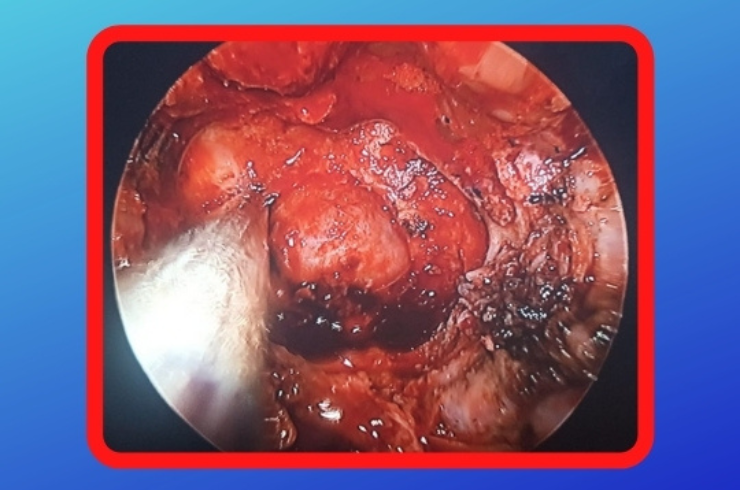Tumor Removal Surgery at Asian ENT Care Centre, Hyderabad
Tumor Removal Surgery is a crucial medical procedure performed to remove tumors or abnormal growths from various parts of the body, particularly in the head, neck, and throat regions. At Asian ENT Care Centre in Hyderabad, we specialize in diagnosing and surgically treating a variety of tumors, ensuring comprehensive care for both benign and malignant growths.
What is Tumor Removal Surgery?
Tumor removal surgery involves the excision or removal of abnormal tissue growths, either benign (non-cancerous) or malignant (cancerous), to prevent further health complications. In the head and neck area, tumor removal can be performed on structures such as the oral cavity, larynx, nasal passages, parotid glands, and thyroid, among others.
Types of Tumors We Treat
- Head and Neck Tumors: Includes cancers of the throat, larynx, tongue, mouth, nose, and sinuses.
- Thyroid Tumors: Both benign growths and thyroid cancers can be removed surgically.
- Parotid Gland Tumors: Benign and malignant tumors of the parotid glands, which are major salivary glands.
- Oral Tumors: Tumors in the mouth or gums, including oral squamous cell carcinoma.
- Salivary Gland Tumors: Removal of benign or malignant tumors in the submandibular and sublingual glands.
Symptoms of Tumors
The symptoms of tumors vary depending on their location, but common signs include:
- Lumps or Swelling: In the neck, throat, or mouth area.
- Pain or Discomfort: Persistent pain, especially in the throat or mouth.
- Difficulty Swallowing or Breathing: Caused by tumors blocking airways or the esophagus.
- Voice Changes: Hoarseness or difficulty speaking, which can indicate a laryngeal tumor.
- Unexplained Weight Loss: Often associated with malignant tumors.
- Bleeding or Discharge: Blood in saliva, nasal discharge, or throat mucus.
Why is Tumor Removal Surgery Needed?
Tumor removal surgery is essential for:
- Preventing the spread of cancer (in the case of malignant tumors).
- Relieving symptoms such as difficulty swallowing, breathing, or speaking.
- Restoring normal function of affected areas, such as the vocal cords, sinuses, or salivary glands.
- Improving the quality of life by removing painful or uncomfortable growths.
Surgical Approaches for Tumor Removal
The specific surgical approach will depend on the tumor’s location, size, and whether it is benign or malignant. Common techniques include:
- Minimally Invasive Surgery: Where appropriate, we use endoscopic techniques to remove tumors via small incisions, ensuring quicker recovery and minimal scarring.
- Open Surgery: In cases where the tumor is large or located deep within tissues, a more traditional surgical approach may be required.
- Microsurgery: For precise removal of tumors near critical structures, like the vocal cords or facial nerves, microsurgery is used to minimize damage to surrounding tissue.
What to Expect During Tumor Removal Surgery
- Preoperative Assessment: Prior to surgery, diagnostic tests such as CT scans, MRIs, biopsy, and ultrasound are performed to determine the exact size and nature of the tumor.
- Anesthesia: The procedure is performed under general anesthesia, ensuring that the patient remains comfortable and pain-free throughout the surgery.
- Surgical Removal: The surgeon will carefully remove the tumor while preserving nearby healthy tissue. In some cases, surrounding lymph nodes may also be removed if there’s a concern for cancer spread.
- Post-Surgery Care: After surgery, patients are monitored for any signs of infection or complications. Pain management is provided, and antibiotics may be prescribed to prevent infection.
Recovery After Tumor Removal Surgery
- Hospital Stay: Most patients are required to stay in the hospital for 1-2 days, depending on the extent of the surgery.
- Follow-Up Appointments: Regular follow-ups are crucial to monitor healing and ensure there is no recurrence of the tumor.
- Speech Therapy and Rehabilitation: For patients who undergo surgery in areas such as the vocal cords, speech therapy may be recommended to restore normal function.
- Recovery Time: Most patients can return to their normal activities within 2-6 weeks, depending on the surgery’s complexity.
Potential Risks and Complications
While tumor removal surgery is generally safe, it comes with certain risks, including:
- Infection: At the surgical site or deeper tissues.
- Bleeding: Especially if the tumor is near blood vessels.
- Damage to Surrounding Structures: Such as nerves or muscles, which can affect functions like swallowing, speaking, or breathing.
- Recurrence: In the case of malignant tumors, there’s a risk that the tumor could return, requiring additional treatment or surgery.
Why Choose Asian ENT Care Centre for Tumor Removal Surgery?
- Expert Surgeons: Our experienced ENT surgeons specialize in head and neck tumors, providing expert care and treatment.
- Comprehensive Diagnosis: We use state-of-the-art diagnostic tools for accurate identification and assessment of tumors.
- Minimally Invasive Techniques: Whenever possible, we perform tumor removal using minimally invasive methods for faster recovery and minimal scarring.
- Patient-Centered Care: We provide personalized care, ensuring that each patient receives the best treatment for their specific condition.
Book a Consultation Today
If you or a loved one are experiencing symptoms of a tumor, book a consultation at Asian ENT Care Centre in Hyderabad. Our expert team is dedicated to providing accurate diagnosis, advanced treatments, and compassionate care for all head and neck tumor-related concerns.
